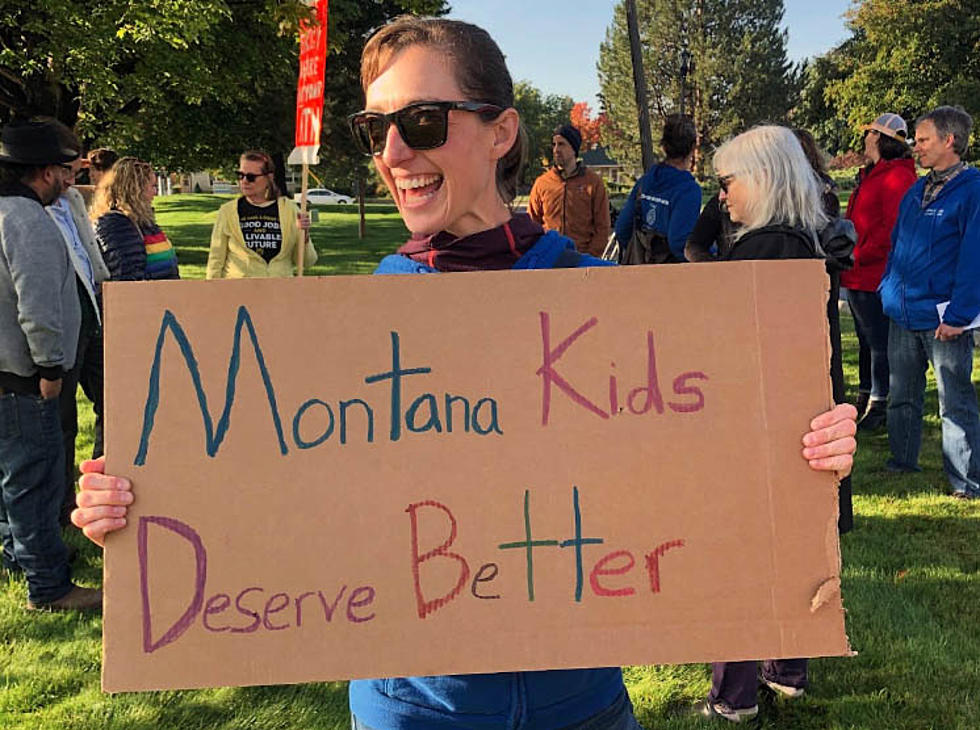
Viewpoint: Laurel generating plant undermines youth voices
Two weeks ago, the youth plaintiffs in the landmark climate change case, Held v. Montana, filed a brief backing another lawsuit intended to stop the construction of a NorthWestern Energy gas plant in Laurel, Montana.
We side with the plaintiffs of this lawsuit in calling for the Montana Supreme Court to vacate the air quality permit because of the DEQ’s flawed analysis.
The lawsuit, brought by the Montana Environmental Information Center (MEIC) and the Sierra Club, argues that the Montana Department of Environmental Quality (DEQ) overlooked the troubling impacts the Yellowstone County Generation Station would have on the community and the climate.
The Montana Environmental Policy Act requires a full evaluation of harm caused by state agency decisions and the public to be informed of these potential impacts. DEQ did not do that in issuing an air quality permt. In fact, a Montana district court found that DEQ failed to analyze the greenhouse gas emissions and associated climate impacts in Montana.
The community of Laurel has largely been left out of local decisions on the construction of the plant. For example, NorthWestern says it went through the proper process to rezone the plant site from agricultural to heavy industrial land use, but Laurel residents were not given the opportunity for public comment and neither the city nor Yellowstone County seem willing to claim jurisdiction over the land.
We spoke with Laurel resident, and retired refinery worker and railroader Steve Krum, who says he became involved in this issue due to the misleading information surrounding the case. “There was an article… that made it sound like the plant was being dropped,” he says. “A lot of people thought that it wasn’t even happening.”
The concerns of Laurel community members like Steve Krum led a Yellowstone County District Court judge to invalidate the air quality permit issued by the DEQ and to order a halt to construction. Later that month, the Montana Legislature passed now-overturned HB 971, which prevented agencies from considering greenhouse gas emissions in permitting decisions. This negated the Court’s order and allowed construction to continue, while the air permit continues to be challenged in court.
NorthWestern has promoted the plant as a step towards its goal of net zero emission by 2050, but gas-fired power plants are far from clean. The intial April 2023 ruling noted that if constructed, the plant would emit nearly 800,000 tons of climate-harming greenhouse gasses per year for over 30 years.
The Yellowstone County Generating Station will only contribute to Montana’s dense portfolio of greenhouse gas emissions. NorthWestern should be taking steps towards their goal of net zero. However, the Yellowstone Generating Station will set them far from this goal.
In Held v. Montana, decided earlier this year, the court ruled that the plaintiffs had a fundamental right to a clean and healthful environment under the Montana Constitution. This decision also effectively declared HB 971 unconstitutional, providing legal grounds for the plant’s air permit to be vacated again.
Following this landmark decision, Montana has the unique opportunity to be a leader in the transition to renewable energy. The path towards a clean energy future means holding government officials and energy companies accountable now and demanding our constitutional right as Montanans to a clean and healthful environment. As young people living in Montana, we believe that the Yellowstone Generating Station is detrimental not only to the community of Laurel but to Montana as a whole.
In the words of Steve Krum, “I totally believe when you can do better, you should, and when you should, you must, and we’re there.”
Montana must do better. A clean and healthful environment for Montana residents cannot exist when harmful, gas-fired power plants are built and community voices like those in Laurel continue to be ignored. By utilizing Montana’s unique constitution emphasizing the right to a clean environment the state needs to give voice to the younger generations that will be directly affected by the choices made today.
Elaina Lamphere and Soren Cunning are graduate students at the University of Montana, and Odessa Ward is an environmental studies undergraduate student.
